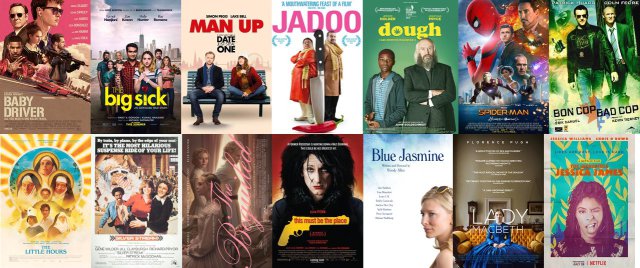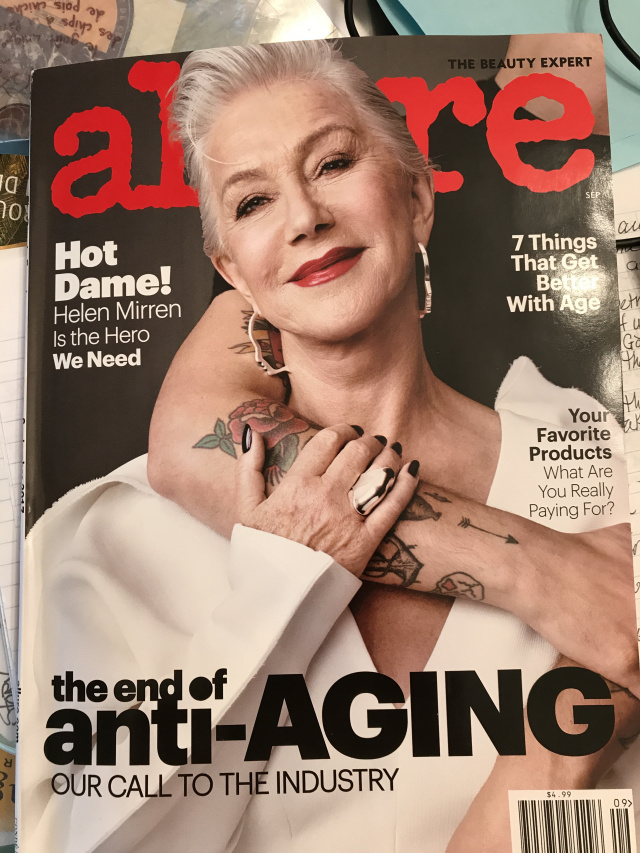Trying to map out your future is a much more complex task than it initially sounds. In this career plan I need to picture where I’d like to be in 5-10 years time and then work out what I’ve got to do in order to get there. It sounds easy but I feel it’s almost inevitable that my plans will change over the next three years on this degree and even from the outset I have already two distinct directions in mind. There is the one option that I feel I naturally gravitate towards and the other, I think plays on some of my strengths but is frankly more daunting than my other option. For the purposes of this career plan I have decided to document why I would like to become an entertainment journalist and what I need to learn over the course of my degree to make turn that plan into a reality.
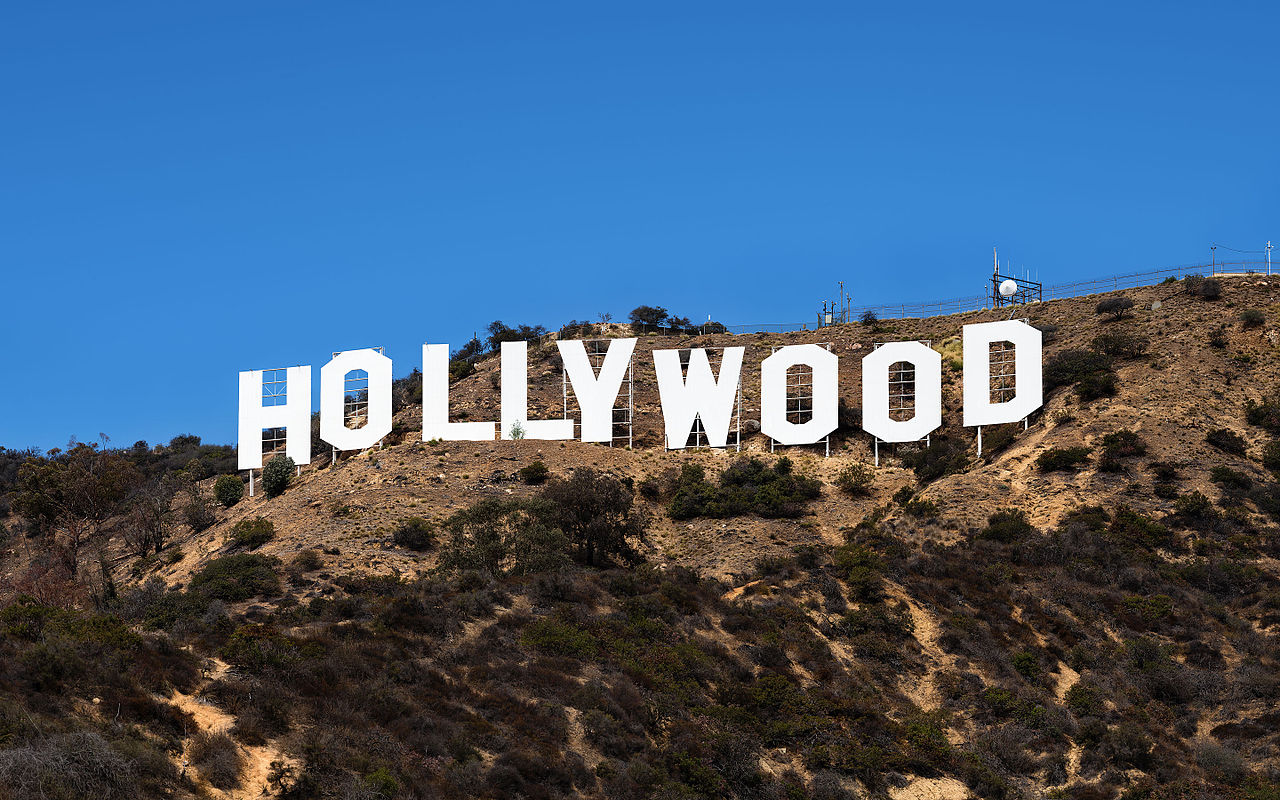 Source: Wikipedia
Source: Wikipedia
Personally, entertainment is a field I’m already well versed in as I consume an awful lot of television and I’ve always been a massive film buff so to be able to do that for a living and then be paid to write or speak about it, would be a blessing – would certainly legitimise all those hours I’ve spent watching Netflix. I don’t necessarily want to get pigeonholed into one area or one subject as I’d like the ability to write about a range of topics across the entertainment industry and while I’m most interested in the entertainment sector, I’d like to remain as flexible as possible. Certainly in the short term I’d like to freelance as I feel it gives you the freedom to write about what you’re passionate about which should enable me to create my best work in order to raise my profile. But long term, I’d like to get a steady job on staff which would mean I could lay down some roots for the future. I think once in a staffing position, it would be interesting to take on more of an editorial role, creating the ideas and managing the publication which I think plays into my already established skills.
They’re lots of possible publications that I could potentially work for in the future, be it in broadcasting at the BBC, online at websites such as Buzzfeed or in print at a newspaper such as The Guardian or a magazine such as Empire. However The Hollywood Reporter probably produces work closer to the kind quality that I would to achieve myself in the future. It’s a publication that has had a rocky past, from being heavily involved in the Hollywood Blacklist in the 1930’s to a string of sexual harassment lawsuits in the mid 2000’s, but in recent years it has gone from strength to strength under the stewardship of Janice Min. The magazine and online platform covers a cross section of mediums including Film, TV, Culture and even Business and Tech. Their stories range from news, reviews to statistical data like box office figures and television ratings. One of the most interesting things they produce is their Roundtable discussions with actors, directors and other industry professionals. The candid nature of these discussions allows us a way into the minds of our favourite public figures and the eye opening debates they have gives us a sneak peak behind the curtain of what it is like to work to in the industry and the challenges they come up against. It’s also interesting to see these big personalities interacting with one another and it’s fun to observe the respect (or lack thereof) they have for one another as professionals.
In terms of specific journalists I have always really respected the work of Mark Kermode. Some would perhaps argue that a film critic isn’t really a “proper journalist” but Kermode has come from working at print publications such as Manchester City Life and Time Out magazine before moving onto to do television and radio with the BBC alongside his position as Chief Film Critic at The Observer. His reviews have always been fairly balanced. It’s hard when your work is based almost purely on your own opinion but Kermode consciously tries to respect that sometimes, some films, just aren’t made for him. On his film review radio show with Simon Mayo, he is often quick to point out when he isn’t the target audience for something and will always try to view what he is watching objectively.
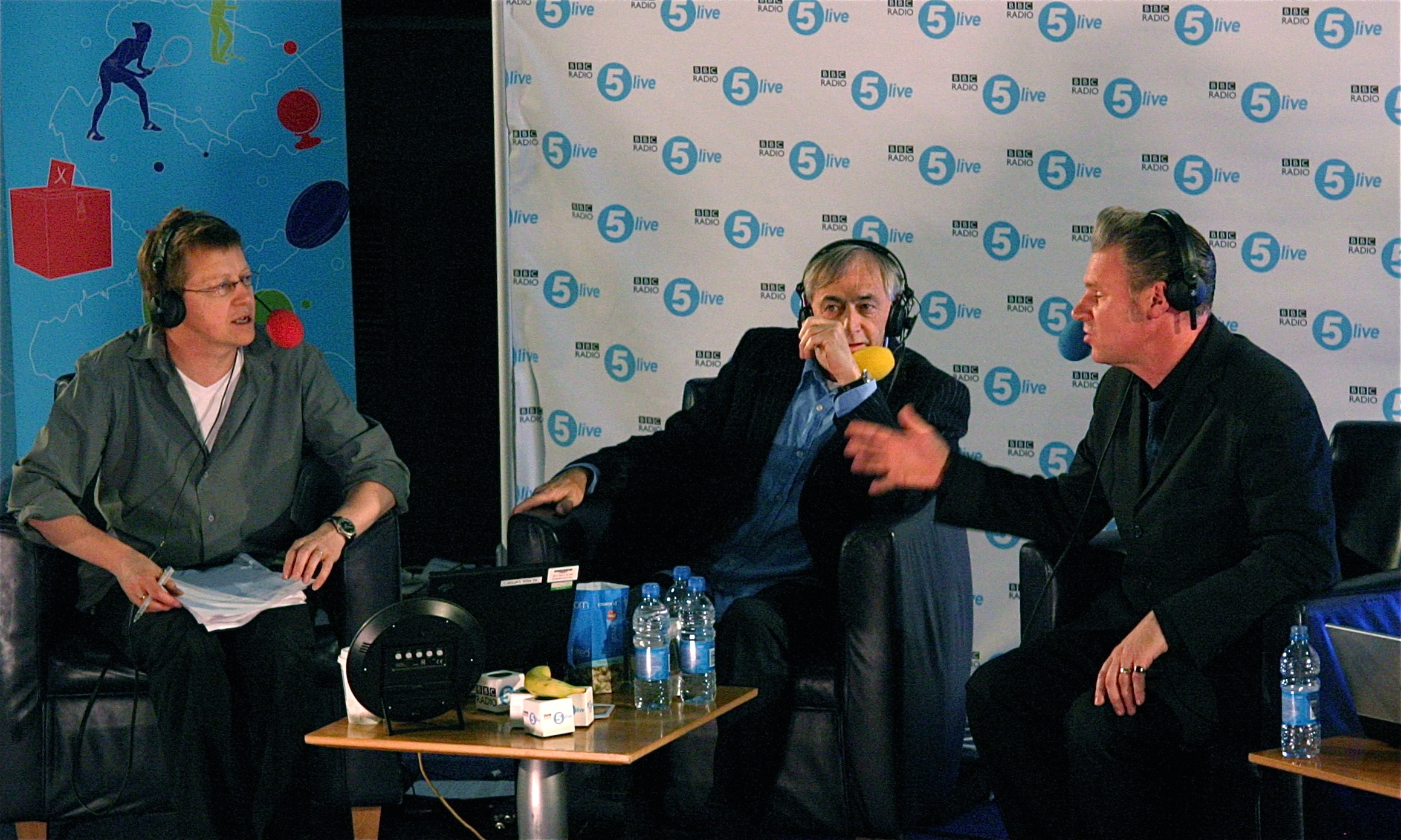 Source: Wikimedia
Source: Wikimedia
For example, his review of 2016’s Captain America: Civil War on 5Live is a classic example of this. He admits that he has his issues with the film, namely the running time, but relents that he isn’t really the target audience. As someone who sees all manner of films, a big blockbuster, nerdy smash-fest isn’t exactly his go-to genre when he’s looking to put on a DVD but he’s able to judge the film fairly and appreciate its merits. Interestingly he also draws comparisons to DC’s Batman vs Superman: Dawn of Justice that was released earlier the same year which is a film he and other critics ripped apart.
I think one of the main skills of a film critic, like all journalists, is the ability to remain impartial. Your opinion is going to naturally frame your appraisal of what your critiquing but it’s important to be able to see something through the eyes of who it was created for. In order to do the review, Kermode would’ve needed to see the film ahead of general release either at a press screening or the premiere. With some films, critics will watch a film at a film festival such as Sundance or Cannes Film Festival which screens the film weeks, sometimes even months ahead of general release.
It’s also interesting to look at Matt Thompson’s ideas on four different types of journalists. I think naturally I fall most comfortably into the Provocateur mindset as I’d like to think I look at a topic in a new and interesting way that sets my stories apart from that of others. I believe I’m someone who enjoys testing the boundaries, poking the bear in order to see his or her reaction and ultimately I’d like to see myself as someone who leads rather than follows. That said, I think it’s difficult to just pin myself down to just one of the four types as the shoe never fits perfectly. If anything, I’m combination of all four but particularly the Provocateur for the reasons I mentioned above but also a Systems Analyst and Storyteller as well. I think as writers, we all have a story to tell no matter how big or small it is. As journalist we are all telling stories, so to not describe ourselves as storytellers seems strange to me. In terms of Thompson’s explanation, I think I definitely strive to connect people to important stories as in my view it’s a fundamental job of any journalist. As for being a Systems Analyst, I think I naturally also work with statistics and numbers a lot, as a way of backing up stories with facts rather than just conjecture. I find it really interesting taking statistics and data and applying it to a story to help readers better understand the story and the world at large. It’s easy to tell a story saying that Donald Trump won the US election but it’s more interesting to explain how he did it. It’s fair to say that any good journalist would like to believe that they possess all four of Matt Thompson’s journalistic qualities.
In order to be a good journalist, I have to read and consume media as much as be a part of it, so to become an entertainment journalist I need to make sure that my media consumption is relevant. It goes without saying that I need to be reading the entertainment sections in the likes of The Guardian or The Observer, as well magazines such as Empire, Total Film and Sight and Sound. While also watching plenty of television and film, it’ll also be important to watch review shows such as BBC Film and BBC News’ The Film Review as well as behind the scenes shows such as The Talking Dead which can offer further scope on the parent programme itself. Websites such as The Hollywood Reporter, Digital Spy, Variety and the more low brow TMZ should also become a part of my daily reading.
That said it’ll still be important to remain engaged with the wider media as understanding what is going on in the world will always prove useful in my work. Regularly listening to BBC Radio 4’s Today show or watching BBC Breakfast will keep me abreast of current affairs as it regularly has a role to play across a large subsection of industries – including entertainment.
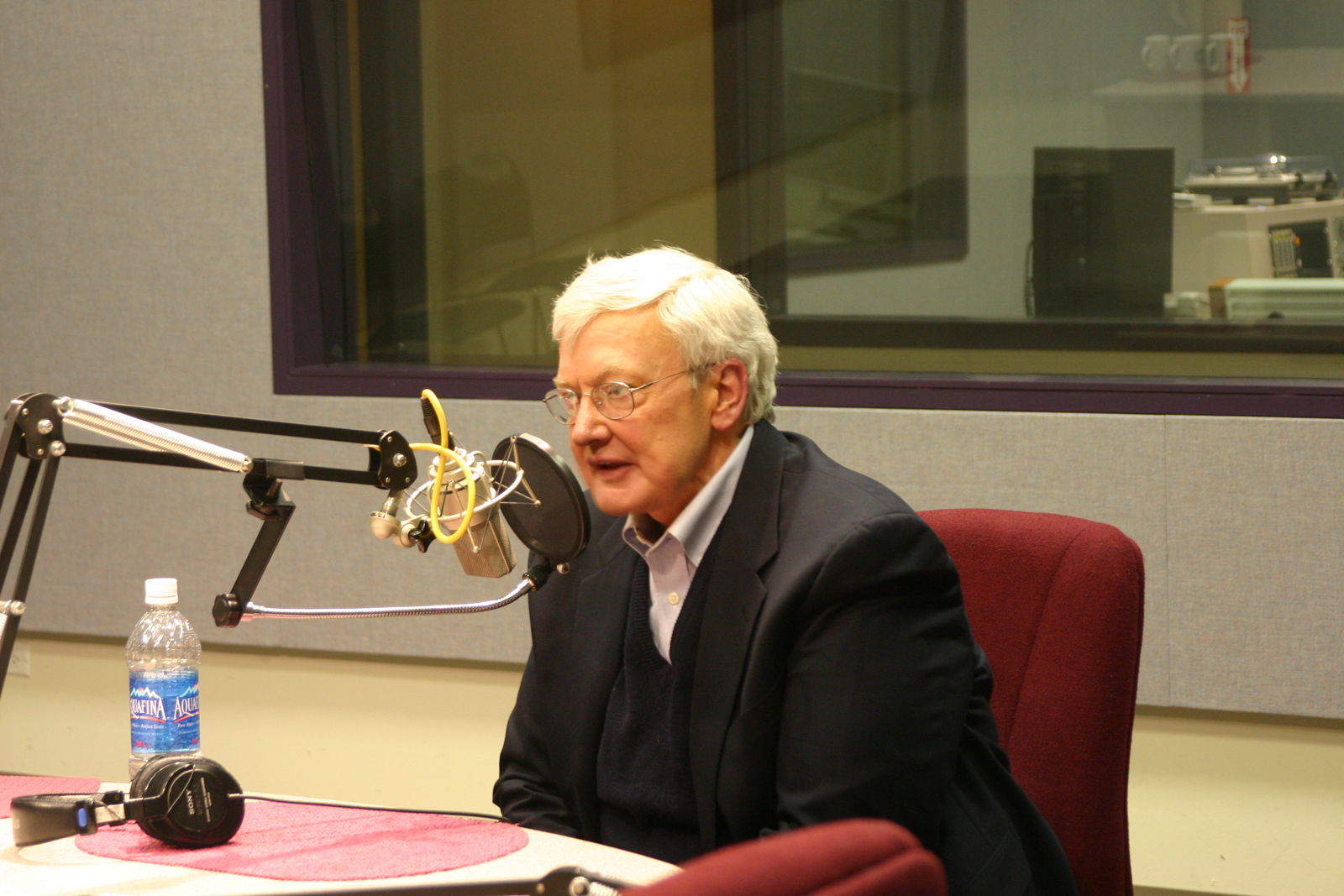 Source: Wikimedia
Source: Wikimedia
In terms of relevant people to follow, in the entertainment industry there is a wide range of people to choose from. In terms to critics and journalists, it’s useful to follow Mark Kermode (@KermodeMovie), IndieWire’s Anne Thompson (@akstanwyck), The Guardian’s Danny Leigh (@dannytheleigh), Christy Lemire (@christylemire) formerly of the Associated Press, Empire Magazine’s Chris Hewitt (@ChristHewitt), The Wrap’s Alonso Duralde (ADuralde), LA Times TV Critic Robert Lloyd (@LATimesTVLloyd) and the late Roger Egbert (@ebertchicago) whose legacy is being continued through those who contribute to his website rogeregbert.com in the years after his death.
The publications themselves are also useful accounts to follow including The Hollywood Reporter (@THR), IndieWire (@IndieWire), The Guardian (@guardianculture), Variety (@Variety), Deadline Hollywood (Deadline), Empire Magazine (@empiremagazine), Total Film (@totalfilm), Mayo & Kermode’s BBC Radio5Live show (@wittertainment), BBC Film (BBCFilm2017), Entertainment Weekly (@EW), E! Entertainment (@e_entertainment) and TMZ (@TMZ).
In order for me to get the best possible start, I’m going to need to follow a path through this degree that will allow me to pick up the best skills that will suitably equip me for a career in Entertainment Journalism. For my optional choice in Year One I have chosen to do Consumer and Lifestyle Journalism which while might not perfectly fit in with my career plan, does strengthen the skills I have developed so far in Semester One. Lifestyle and Entertainment certainly shares some resemblances in that they’re not always considered “serious journalism” in the same way that political or investigative journalism is.
In Year 2 I intend to do Multimedia Storytelling & Production and if possible I’d like to do both pathways as I think it would beneficial to learn both Online and TV & Radio however if I cannot do both pathways I’d probably opt to do Online due to the growth of the industries online platforms. If doing both pathways isn’t an option, I’d also be interested in doing Talk Radio as Podcasting is a growing medium, particularly in regards to Entertainment journalism with Kermode & Mayo’s film review show on 5Live regularly rating as one of the most listened to podcast in the UK.
Finally in Year 3 I’d probably opt to do the Extended Essay but the only optional choice that jumps out at me is the Arts & Entertainment pathway of the Specialist Journalism option. If I do take the Talk Radio option in Year 2 and I do enjoy collaborating with the Radio Production students, it may be worth doing the Radio Production option if it’s available. However due to the lack of relevant options it may be that I only take the one option and instead do the 8000 word dissertation.
I think while it’s easier enough to sketch out where I’ll go over the next 3 years, I know from experience that very rarely does life end up the way you expect. I half expect that I’ll deviate completely from what I’ve set out here but I know it’s useful to have some kind of plan in place before embarking on what will be incredibly challenging three years and beyond.
Feature Image Source: Wikimedia
Advertisements Share this: